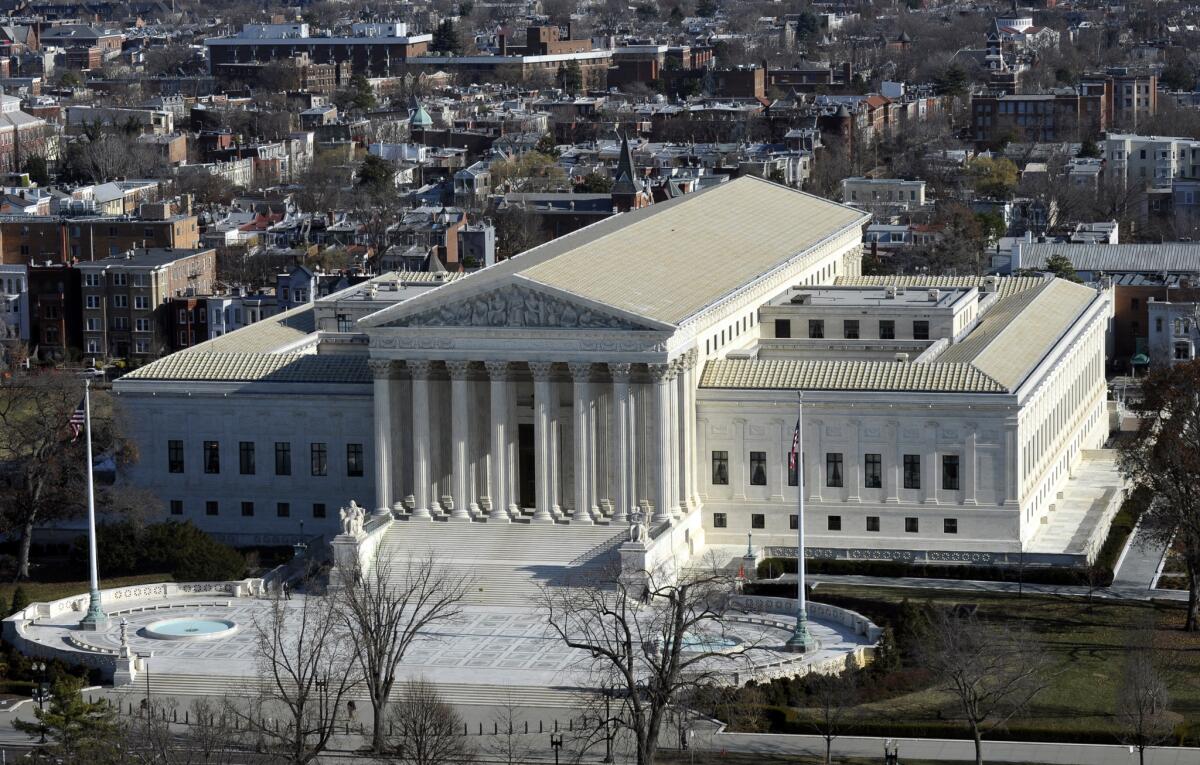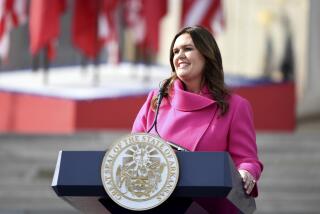Obamacare insurers may win a $12-billion claim in Supreme Court

The Supreme Court gave a sympathetic hearing Tuesday to health insurers who were promised their losses would be covered if they expanded coverage under Obamacare, only to have the Republican-controlled Congress later refuse to pay.
“This case involves a massive government bait-and-switch and the fundamental question of whether the government has to keep its word,” Washington attorney Paul D. Clement told the court.
Most of the justices sounded both surprised and skeptical of the Justice Department’s claim that Congress was free from having to pay for its past promises.
At issue is a provision of the Affordable Care Act of 2010 that encouraged health insurers to offer coverage at reasonable rates to people who had been denied because of preexisting medical conditions. The law said the government “shall pay” insurers if they lost money by offering this coverage. However, they were required to pay the government if they made extra profits from the high-risk group.
But when the coverage began in 2014, the losses for insurers were higher than expected. And a year later, Republican lawmakers said they would not appropriate the money to cover those losses from 2014 to 2016. Many GOP lawmakers characterized the payments under the so-called risk corridors as a government “bailout.”
The insurers, some of whom were driven out of business, later filed claims in federal court that totaled $12 billion.
A U.S. court of claims ruled for the insurers, but a federal appeals court reversed that decision and said Congress had the final word on whether to appropriate money to pay for earlier promises.
“Although we agree with [health insurer] Moda that Section 1342 obligated the government to pay the full amount of risk corridors payments according to the formula it set forth,” the appeals court said, “we hold that the riders on the relevant appropriations effected a suspension of that obligation for each of the relevant years.”
During Tuesday’s argument, lawyers clashed over whether a law passed by one Congress could be binding on appropriators of the next.
Defending the government’s refusal to pay, Deputy Solicitor Gen. Edwin Kneedler said “any payment [promised by the 2010 law] was contingent on a future appropriation.” It would be a “dramatic change” if the court were to “impose unprecedented liability on the United States.”
But Justices Stephen G. Breyer, Elena Kagan and Chief Justice John G. Roberts Jr. all said it would be strange to rule Congress could promise private companies it “shall pay” them to undertake a certain task while reserving the right to not pay once the task was complete.
Kneedler insisted there was “no language of promise in this statute, no language of entitlement.”
The chief justice interrupted, quoting the law. “‘Shall pay,’ right?”
“Well, it’s an instruction to an agency to pay,” Kneedler replied.
Roberts objected again. “Are you suggesting just because the government told the agency to pay, that doesn’t mean the agency has to?”
Kneedler said that without an appropriation from Congress, the agency could not disburse the money.
Justice Brett M. Kavanaugh said Congress often says in a law that funding is subject to a future appropriation. But the Affordable Care Act did not include such a warning, he noted.
Kagan also pointed out that under the government’s view, insurers were required to hand over any excess profits to Washington, but their losses were not covered. “You pay in, that’s obligatory. We commit ourselves to paying out — it turns out — if we feel like it. What kind of a statute is that?” she asked.
Seven years ago, Clement, a former U.S. solicitor general, led the legal attack on the Affordable Care Act. Then, he argued the mandate for individuals to have health insurance, a key pillar of the law, was unconstitutional. But in a 5-4 ruling written by the chief justice, the court upheld most of the law. However, the justices agreed with Clement on one issue and ruled that states could not be required to expand Medicaid to cover more low-income people.
Tuesday’s argument had none of the ideological intensity of the earlier disputes over Obamacare. Instead, Clement focused on how the Congress of 2010 had enlisted the help of private insurers to take more risk by expanding their coverage.
“The program depended on a clear and enforceable promise that the government would pay for a portion of any losses incurred by the health insurance companies that stepped forward,” he said. Congress made “a clear promise to pay” to cover those losses, he said.
If the high court agrees, it could leave Congress facing a $12-billion debt.
The case heard Tuesday, called Maine Community Health Options vs. United States, combined appeals from insurers in different regions of the country. It will be several months before the justices issue a ruling.
More to Read
Get the L.A. Times Politics newsletter
Deeply reported insights into legislation, politics and policy from Sacramento, Washington and beyond. In your inbox three times per week.
You may occasionally receive promotional content from the Los Angeles Times.






